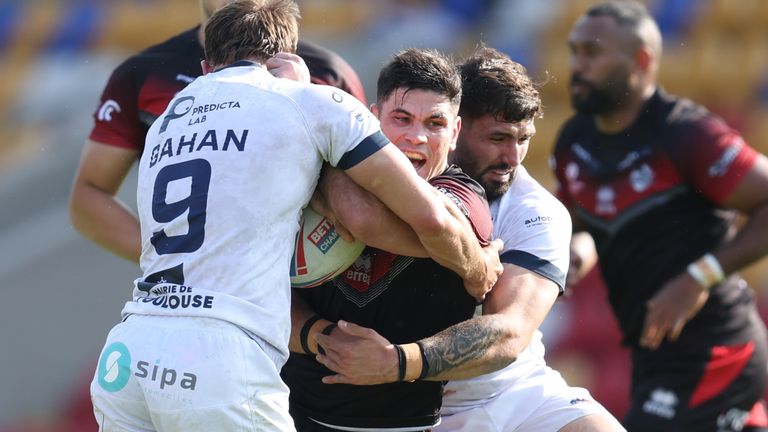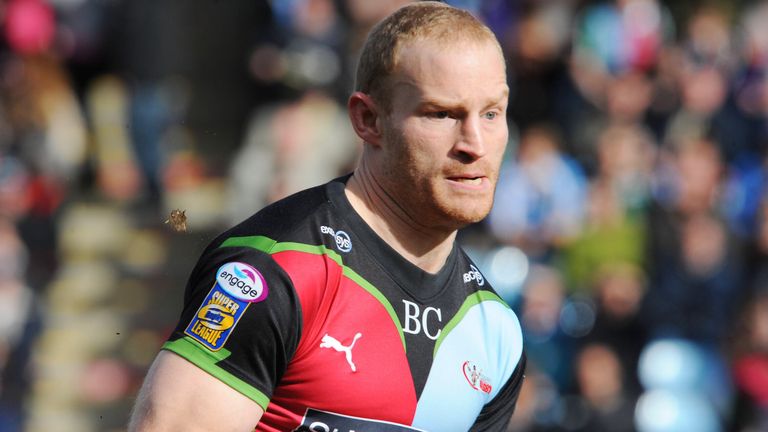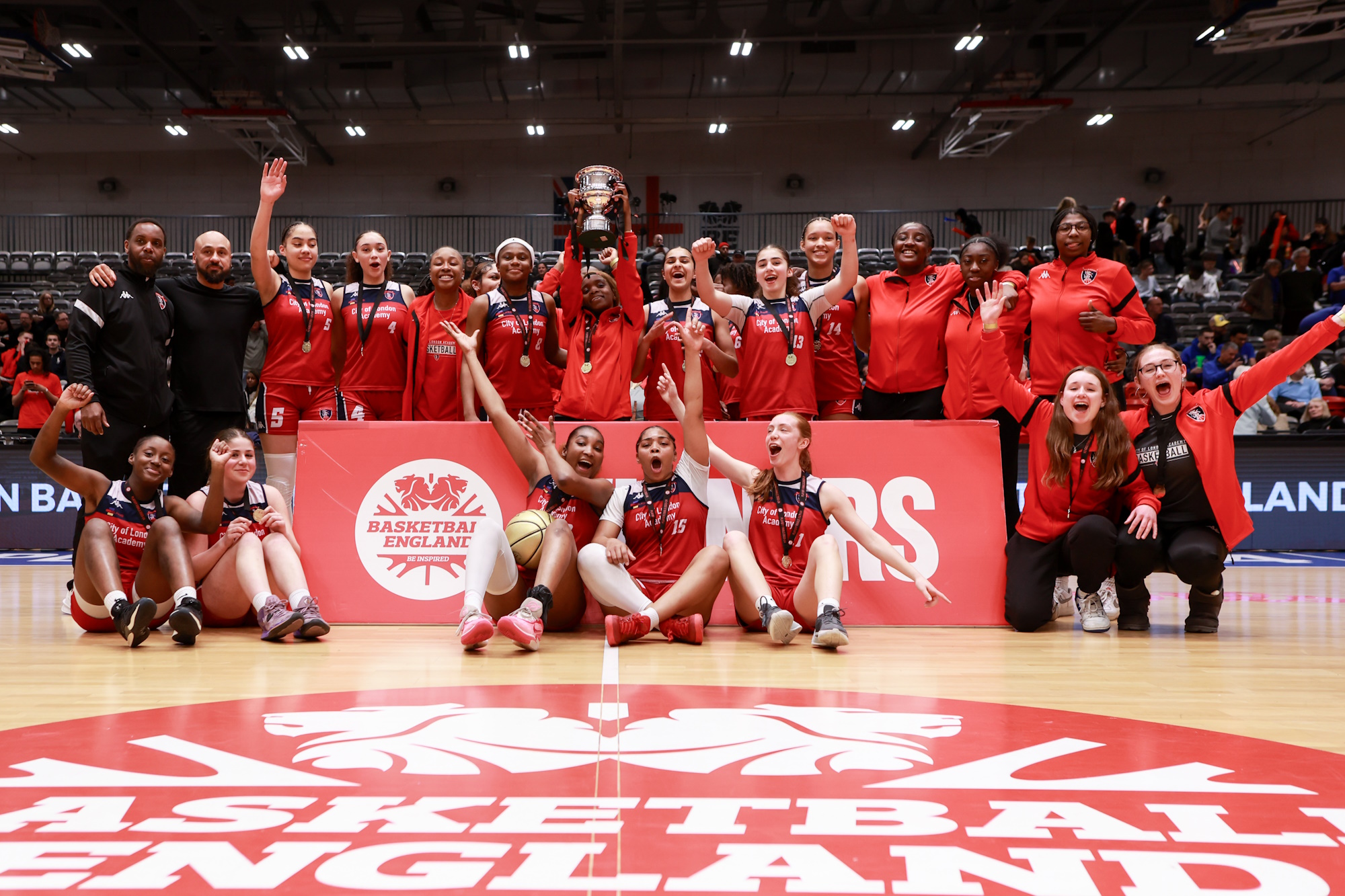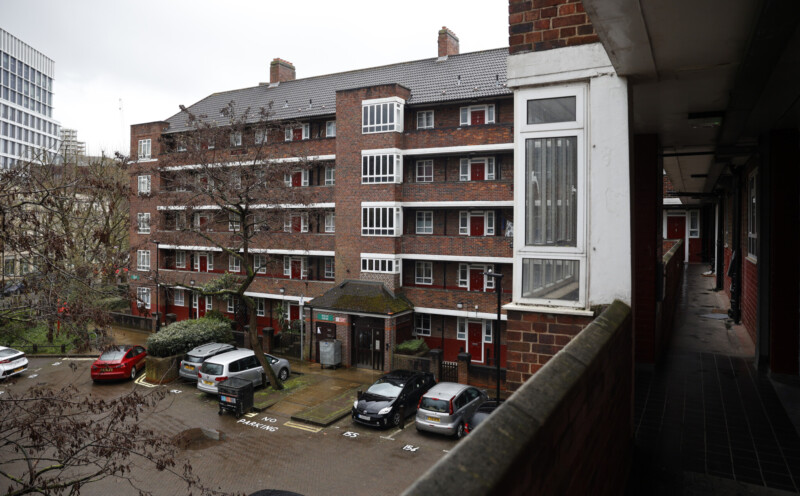Jon Wells
Rugby League Expert
The team which will replace relegated Wakefield Trinity in the Betfred Super League in 2024 will be decided on Sunday when Toulouse Olympique and London Broncos face off in this year’s Betfred Championship Grand Final
Last Updated: 13/10/23 5:12pm

Toulouse and London Broncos face off for promotion to Super League for 2024 on Sunday
On the eve of Super League’s showpiece event, when all eyes are understandably on Wigan Warriors and Catalans Dragons, and all of the storylines surrounding that, it is worth pausing to consider what will happen less than 24 hours after the lights go out at Old Trafford.
Sunday, October 15, 2023, is a significant day for the two clubs who fight it out in the Betfred Championship Grand Final, as they do so in the knowledge that whoever wins that game will enter a Super League and a sporting landscape that is about to make a seismic change.
This will be the final year of automatic promotion and relegation before the IMG grading criteria take effect. This is an opportunity to enter the elite division of a sport and put down roots, not spend the season with a trapdoor looming.
Privacy Options
That those two clubs are Toulouse Olympique and London Broncos is equally significant. Rugby league in this country is a sport which began life, and has largely remained confined to, a corridor in the north of England. Fanbases are passionate and partisan for sure, but they are watching on as limited resources beget limited wider national and international appeal.
Here is my first declaration of interest: I am an expansionist. I want this game to enjoy the benefits of a successfully implemented and administered league with a geographical footprint that will generate wider and more sustained interest.
This then has to be leveraged in order to bring more commercial revenue into the sport – and don’t give me the tired “they bring no away fans” line. If you are part-budgeting a club’s revenue streams based on away support, then you are not concentrating hard enough on attracting your own supporters to your 13 home games a season.
But it is also a hugely significant day for the sport as a whole – a threat or an opportunity again, depending on your viewpoint – to properly facilitate long-term, targeted development in two non-heartland areas where rugby league is of significance and import, for the wider benefit of the whole game, and to hopefully do so armed and responsive to the knowledge of past mistakes.

Jon Wells in action for Harlequins RL during his playing career
I write these words with some bias. I spent the majority of my playing career in west London, playing for the Broncos and Harlequins RL as they were rebranded ahead of the 2006 season.
During my time there, I got to see first-hand the amount of work that was put into the establishment and further development of local teams at the time, from the Greenwich Admirals, Medway Dragons, West London Sharks, South London Storm and the London Skolars.
Make no mistake, there is genuine interest and buy-in in that part of the world, and if you don’t believe me go and argue it out with Louie McCarthy-Scarsbrook or Kai Pearce-Paul. But it is also true that there have been many mistakes made there too: The nomadic nature of the top of that pyramid and misguided expectation that fans would follow being chief among them, the lack of connection between the top and the rest of that pyramid being another.
Similar sentiments apply to Toulouse. This is a major European, cosmopolitan city who have already had a fleeting taste of life at the top, and they will hopefully have learned from their past mistakes as well, because they certainly didn’t make the most of life in the elite division at the first attempt in 2022.
Privacy Options
Whatever your views on grading or licencing (chose your preferred verb, but we’ll call it grading here), there is only one team which has entered Super League since automatic promotion and relegation was restored that has not gone back down in the same season. That was Leigh Leopards this year, and they managed that with a clear vision, foresight, planning, and some serious investment.
One benefit of grading is that you are not solely judged on on-field performance, not working against the clock, fishing in a limited talent pool when, by the time of your promotion, all the better players are already signed for the following season.
You can make longer term decisions and balance the management of any need for immediate on-field success with a longer term development and recruitment strategy. In short, it protects coaches and owners from having to roll the financial dice.
So, as a Yorkshireman who spent his youth on the terraces of Featherstone Rovers and the Castleford Tigers and was lucky enough to be exposed to the concept of rugby league outside of the north of England, may the best team win, and welcome to Super League for 2024.
It’ll be very different this time around.
https://www.skysports.com/rugby-league/news/11070/12983934/championship-grand-final-jon-wells-on-toulouse-or-london-broncos-aiming-to-join-super-league-in-2024




